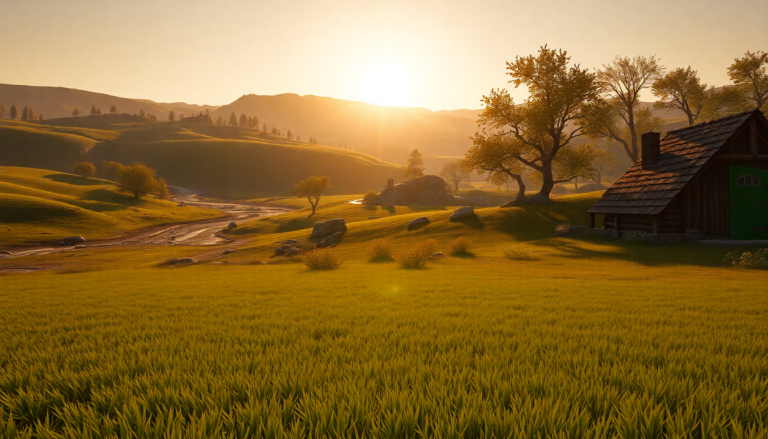Argomenti trattati
The world of gaming is often a vast, labyrinthine journey filled with unexpected turns. Imagine transitioning from the neon-lit streets of Cyberpunk 2077 back to the medieval landscapes of The Witcher 4. For the team at CD Projekt RED, this shift has been anything but straightforward. After immersing themselves in the gritty, futuristic universe of Cyberpunk, the challenge of returning to the beloved fantasy realm of Geralt of Rivia has sparked both excitement and apprehension. This transition represents not just a change in setting, but a complex recalibration of mindset and creative vision.
Adjusting to a new reality
As the development team dives back into the rich lore of The Witcher series, they acknowledge the unique difficulties associated with switching genres. Pawel Mielniczuk, the art director of Project Hadar, expressed how challenging it has been to pivot from the intricate, high-tech world of Cyberpunk to the more grounded, medieval atmosphere of The Witcher. It’s akin to swapping a sci-fi novel for a classic fantasy epic—both captivating, yet entirely different in their storytelling approaches.
Indeed, this recalibration is not merely about aesthetics; it involves reshaping the entire framework within which the team operates. Sebastian Kalemba, the game director of The Witcher 4, noted that the brain requires time to adjust to the nuances of each universe. “The moment when you have to recalibrate is tough,” he stated, emphasizing that it takes significant time to truly immerse oneself back into the characters, the narrative style, and the emotional depth that defines The Witcher.
The nostalgia of fantasy
Returning to the world of The Witcher is also a deeply nostalgic experience for the team. Kalemba remarked that it feels incredibly rewarding to step back into a universe that has resonated with so many fans over the years. However, nostalgia doesn’t come without its challenges. While the medieval setting is familiar, the language, culture, and character interactions differ vastly from the fast-paced, dialogue-driven exchanges found in Cyberpunk 2077.
This difference can be likened to a musician switching genres—what once felt instinctive now requires conscious effort to adapt. The art of storytelling in fantasy is more about subtlety and depth, while sci-fi often leans towards exposition and action. The team must find a way to bridge these gaps, ensuring that the essence of The Witcher remains intact while also pushing the boundaries of what’s possible in gaming today.
Embracing dual franchises
Yet, there’s an underlying sense of readiness within CD Projekt RED. The experience gained from developing Cyberpunk has equipped the studio with a wealth of knowledge that can be applied to The Witcher 4. Balancing two franchises—one steeped in medieval fantasy and the other in futuristic sci-fi—allows the team to experiment with concepts that might not have previously been considered.
As they navigate this duality, the developers are keen on improving gameplay mechanics and storytelling techniques derived from their work on Cyberpunk. In a way, the challenges they face are forging a new path forward. Kalemba shared, “We are thinking about how to improve the game,” highlighting an eagerness to innovate while respecting the past. It’s a tightrope walk, balancing tradition with the desire for growth.
Looking ahead with anticipation
As the anticipation builds for The Witcher 4, it’s essential to remember that this game is not just a continuation of a beloved series; it’s also a testament to the evolution of gaming as a whole. CD Projekt RED has already won accolades for their work on The Witcher 4, even before its official release—an impressive feat that speaks volumes about the team’s dedication and the excitement surrounding the franchise.
In many ways, the journey back into fantasy mirrors the experience of fans returning to the series. There’s an eagerness to explore familiar territories while also discovering new facets of the world. The development team is committed to delivering an experience that resonates with long-time fans and newcomers alike, ensuring that The Witcher 4 stands proudly among its predecessors.
As we await further news, it’s clear that the melding of two distinct worlds—sci-fi and fantasy—will not only shape The Witcher 4 but also redefine how we perceive storytelling in gaming. After all, in the realm of video games, the only constant is change.

